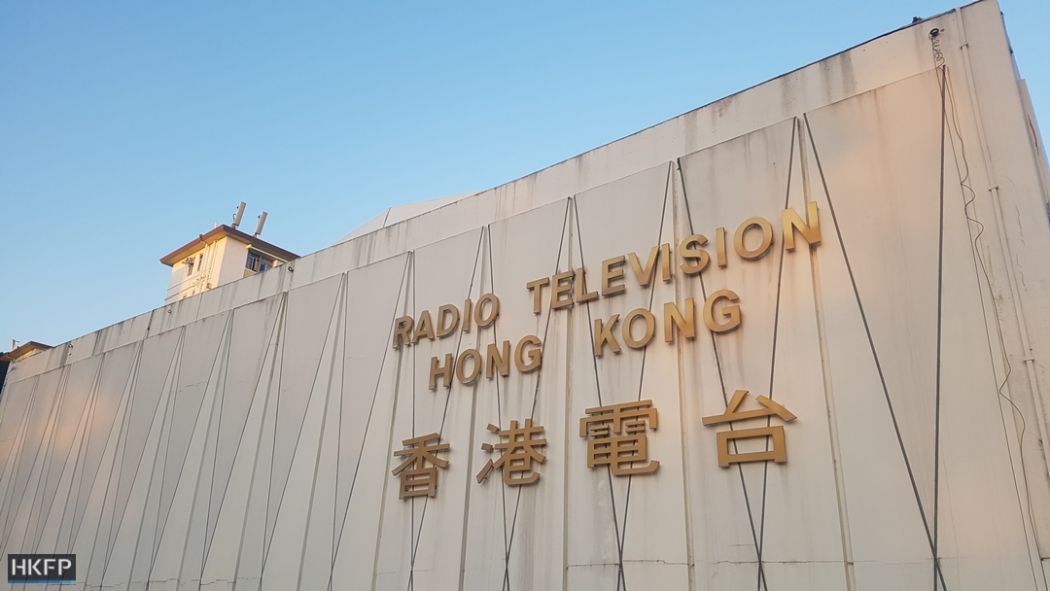Hong Kong’s public broadcaster has removed an interview with pro-democracy Nathan Law who is reportedly wanted by the police.
Law left Hong Kong ahead of the enactment of the national security law and has since resided in London. Last month, RTHK produced a programme about the legislative election postponement – in which Law was featured and interviewed – following Chief Executive Carrie Lam’s announcement. The programme was aired on July 31 on RTHK’s television channel, but it was no longer available on the RTHK website as of this week.

RTHK told Ming Pao that the programme was temporarily unavailable as there had been reports that an interviewee was wanted by Hong Kong police on suspicion of violating the national security law.
There are no laws or regulations which state that the press cannot interview “wanted” activists.
In June 2020, Beijing inserted national security legislation directly into Hong Kong’s mini-constitution – bypassing the local legislature – following a year of pro-democracy protests and unrest. It criminalised subversion, secession, collusion with foreign forces and terrorist acts, which were broadly defined to include disruption to transport and other infrastructure. The move gave police sweeping new powers, alarming democrats, civil society groups and trade partners, as such laws have been used broadly to silence and punish dissidents in China. However, the authorities say it has restored stability and peace to the city.
Press freedom concerns
Chinese state broadcaster CCTV reported on July 31 that Hong Kong police were seeking six pro-democracy figures who are currently overseas, namely Nathan Law, Samuel Chu, Ray Wong, Simon Cheng, Wayne Chan and Honcques Laus.
Police have yet to confirm or deny the report, but RTHK confirmed with HKFP that the material was removed as “[t]he national security law is a piece of new legislation and it is appropriate to handle it cautiously.”
Article 43 of the new law gives the police power to remove messages they deem to be endangering national security and the authorities can require the assistance of platform service providers. Magistrates may also authorise officers to “take any reasonably necessary action on the device for removing the message from the platform.”
Chris Yeung, head of the Hong Kong Journalists Association, told HKFP that the incident was proof that the national security has – and will – worsen issues of self-censorship in the media industry: “Faced with enormous political pressure, RTHK has become more vulnerable. Media cannot be faulted for being prudent when handling sensitive issues. But in this case, it has deepened fears that they have decided to remove the archives to avoid being accused of spreading the views of a democrat activist who is said to be on the wanted list of the police’s national security team.”
“The decision is questionable given the fact that there is so far no official confirmation on reports that Law is wanted. Even if it is a yes, Law remains innocent until proven guilty,” he added.

RTHK Programme Staff Union Gladys Chiu told Ming Pao that the removal of the programme was based on unofficial news and interviewees may feel reluctant to appear on-screen in the future. She said the union was concerned that the move had deprived suspects of their political rights and may tighten press freedom.
When HKFP asked police whether the six exiled activists, including Law, were “wanted,” and whether they had ordered platforms to remove any information, a spokesperson said: “Police has no comment on these issues.”
In response, Nathan Law told HKFP: “I think it’s self censorship and RTHK should uphold their duty as a news outlet to hold those in power accountable, rather than undoubtedly embracing their every actions. I hope that they can reconsider the decision.”
Earlier this year, the government set up a dedicated team to review the public broadcaster’s governance and management, as well as its compliance with its charter. The Communications Authority issued warnings to RTHK over their programmes which touched on the police handling of last year’s protests. The production of Headliner – a 31-year-old political satire programme – was since suspended.
HKFP has reached out to Nathan Law for comment.
Support HKFP | Policies & Ethics | Error/typo? | Contact Us | Newsletter | Transparency & Annual Report | Apps
Help safeguard press freedom & keep HKFP free for all readers by supporting our team
























